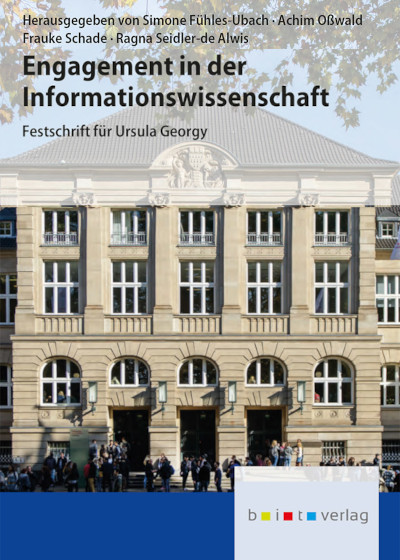 WEITERE NEWS
WEITERE NEWS
- Jessica Sonnenberg übernimmt die Marketing-Leitung bei Schweitzer Fachinformationen
- KI-Projekt soll verkohlte Papyrus-Rollen lesbar machen
- Ausstellung: „Paris ist niemals Exil“ – Gustav Regler in Paris
- Kund:innenumfrage 2024 bestätigt: Die ETH-Bibliothek ist wichtige Dienstleisterin für Studium, Lehre, Forschung
- Makulierung der Zettelkataloge der Staatsbibliothek zu Berlin bis Ende 2026
- KI für alle Hochschulen – GWDG legt Finanzierungskonzept für bundesweite Grundversorgung vor
- Strategie der Allianz für die Weiterentwicklung des wissenschaftlichen Publikationswesens 2026-2030
- Presse-Statement: "Abschaffung des Kulturpasses wäre ein großer Fehler"

Aktuelles aus
L
ibrary
Essentials
In der Ausgabe
- Europäischer Flickenteppich
bei Open-Access-Büchern - Automatisierte Metadaten für Webarchive mit
GPT-4o im Praxistest: Kostenersparnis und Risiken - Die Deutsche Nationalbibliothek
auf Zukunftskurs –
der Strategische Kompass 2035 - Jenseits von Reskilling, Silodenken
und Stellenplänen: Was wir aus den
Human Capital Trends 2025
von Deloitte lernen können - Zwischen Tradition und Innovation:
Wo steht die Bibliometrie heute? - Podcasting in der Wissenschaft:
Chancen für Bibliotheken - Einsatzmöglichkeiten von Sprachmodellen bei der Forschungsbewertung
- Bibliotherapie und Mental Health
- Mehr Transparenz in der Wissenschaft: Nature veröffentlicht künftig standardmäßig Peer-Review-Berichte
- Versteckte KI-Prompts in wissenschaftlicher Forschung: Manipulation im Peer Review
- Open-Access-Tage 2025, Konstanz
- European Conference on Information Literacy (ECIL), Bamberg
- Open Science Conference, Hamburg

fachbuchjournal























































